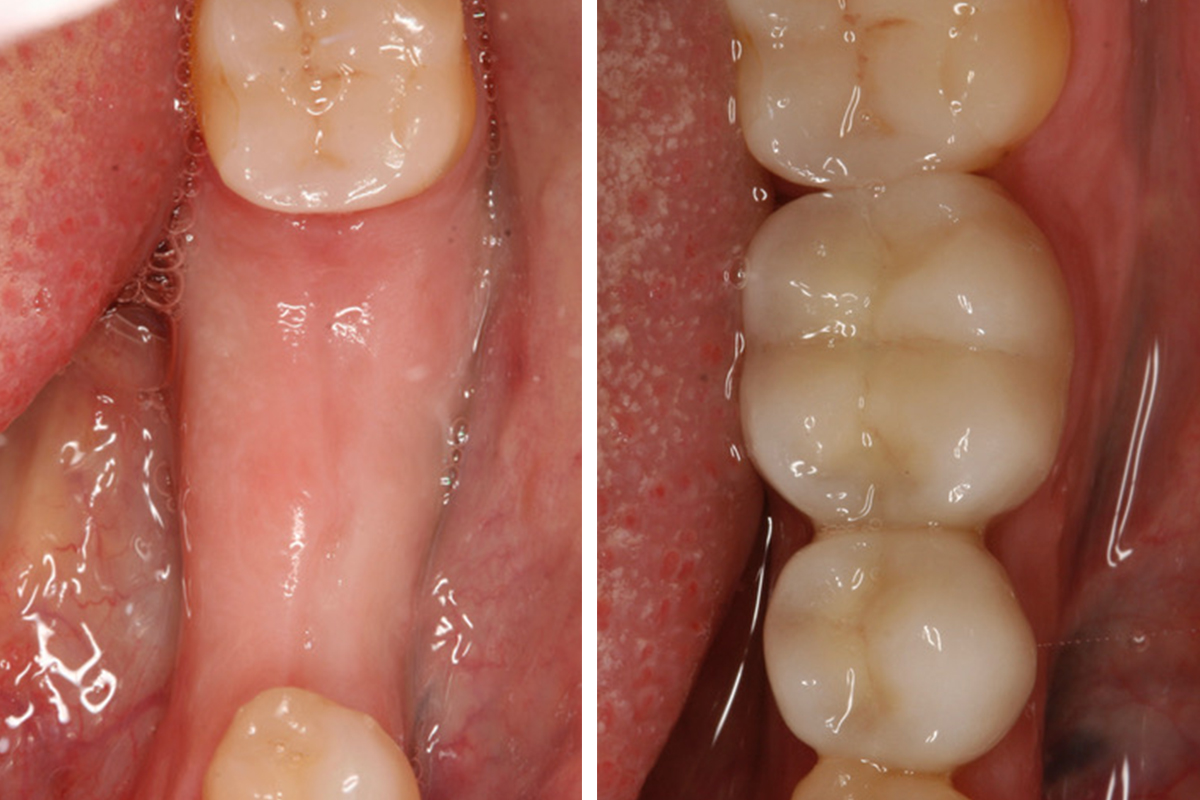Dental implant treatment is a popular option for patients missing one or more teeth. Benefits of dental implants include:
- Aesthetics: Dental implants resemble natural teeth, impressively restoring a patient’s smile.
- Functionality: Dental implants don’t merely look real. They also function like natural teeth, addressing chewing difficulties, speech troubles, and other issues that can arise when a patient is missing a tooth. The presence of an implant can also guard against bone loss, as sections of a person’s jawbone can begin to deteriorate if they don’t have a tooth to support.
- Longevity: Research confirms it’s not uncommon for dental implants to remain in good condition for decades when patients stay on top of care and maintenance.
These are all reasons to strongly consider replacing your missing teeth with dental implants. However, be aware that not all patients are candidates for this treatment method.
Only a professional can say for certain whether you’re a candidate for dental implants. That said, factors that may influence whether this treatment is ideal for you include the following:
Jawbone Strength
A patient’s jawbone supports a dental implant. If a patient’s jawbone is too narrow or isn’t strong enough, they may need to consider other treatment options.
Or, they can potentially undergo a bone grafting procedure. Bone grafting involves adding bone material to the jawbone to increase its volume and strength.
General Health
Various health conditions may interfere with or disrupt the healing process after dental implant surgery. Examples include (but aren’t necessarily limited to) immune disorders and poorly controlled diabetes. Patients with such conditions might not be candidates for dental implant treatment.
Oral Health
Before completing dental implant treatment, a patient may need to address underlying oral health conditions, such as gum disease or decay.
It’s also worth noting that properly caring for dental implants requires adhering to good oral health habits. If a patient doesn’t appear to take decent care of their teeth, gums, and other oral tissues, there may be reasons to suspect they also won’t care for their dental implants.
Age
A patient’s age is often a significant factor affecting whether they’re a candidate for dental implant treatment. If a patient is very young, their face may still be growing and developing. As such, they wouldn’t be a candidate for dental implants yet, though that might change in the future.
An older patient might also be more prone to health conditions that can disqualify them for dental implants. Or, an older patient might prefer a treatment option that doesn’t require months of appointments, procedures, etc.
Lifestyle
Various aspects of a patient’s lifestyle could play a role in whether they’re a candidate for dental implants. For example, if a patient consumes alcohol in excess, smokes heavily or takes drugs this may add to a patient’s risk of experiencing complications after dental implant surgery or make them ineligible for the treatment.
Commitment
Although this may not seem like an important factor when compared to the others on this list, it’s actually a fairly critical one. Because the process of receiving dental implants can take several months, patients need to understand the commitment they are making when they move forward with this treatment option.
Just remember this is merely a general guide. To learn more about whether you’re a candidate for dental implants, discuss the topic with a periodontist.
Learn About Dental Implants in Belmont, Massachusetts
At Schrott Perio Implants, we’re on hand to answer any questions you might have about this treatment option. Get started today by contacting us online or calling us at (617) 484-9240 to request an appointment.

